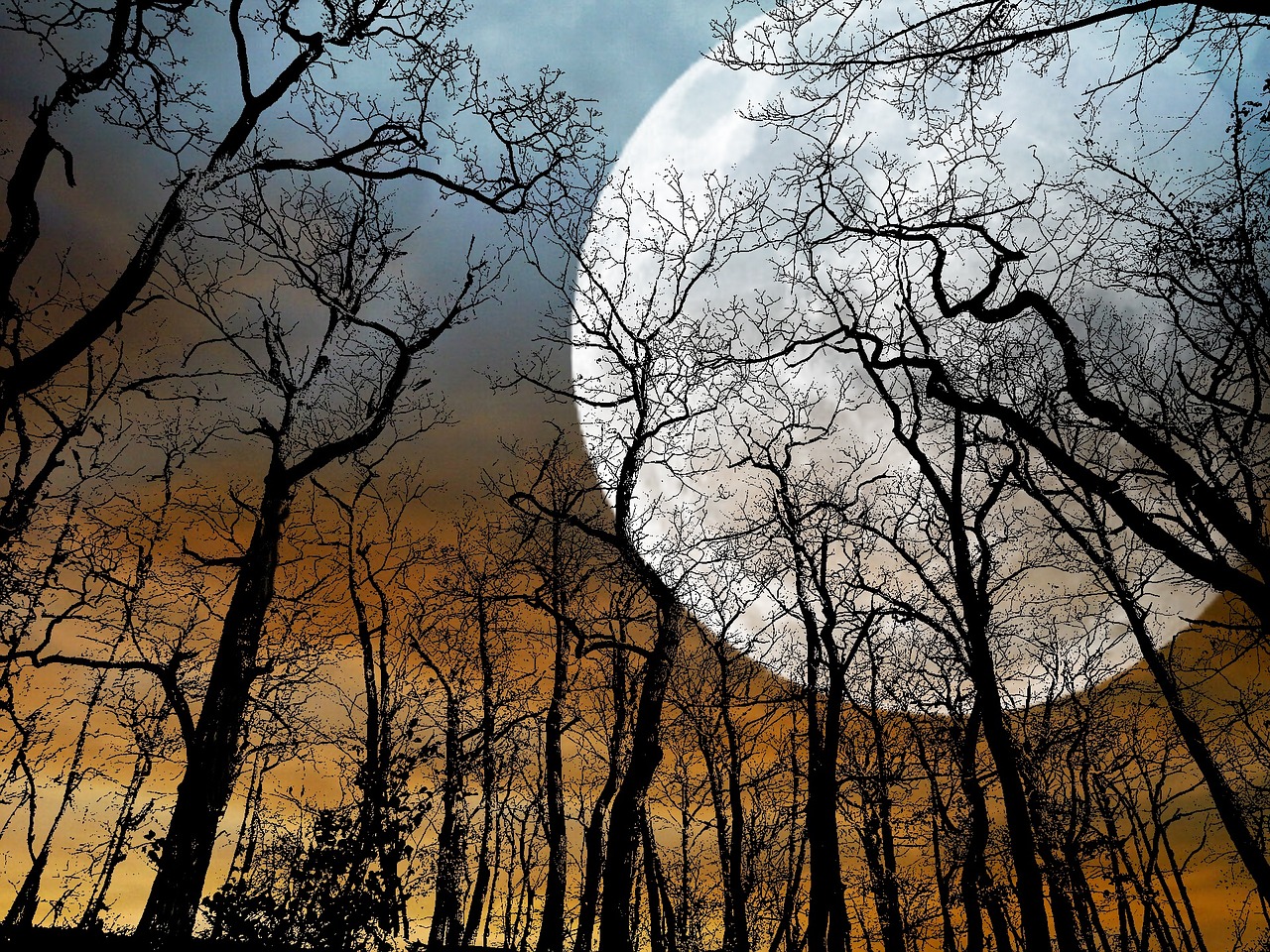
I opened the door to the room which should have been completely dark due to the late hour. Instead, I was struck by bright light coming through the window. I peered outside and the beauty and brilliance of the almost full moon stopped me in my tracks.
What was unusual was that I could only see the moon because the leaves on our neighbor’s tree had already abandoned the branches. Had they still been in place, my view of the harvest moon would have been completely obstructed leaving me with a much dimmer glow speckled through the leaves swaying in the night breeze.
The leaves on our neighbors’ tree don’t give a warning about their detachment from the branches. They don’t turn brilliant colors. They just leave. So, it was a surprise to observe the completely bare branches illuminated by the moonlight.
We often notice the brilliance of color as the trees turn from green to red, orange, yellow and brown in this season of change. On those days when the sunlight magnifies the spectacle of this colorful display here in the upper Midwest, I can’t help but be filled with awe and delight. But these colors are also a warning that bare branches will soon provide texture instead of color for the colder weather ahead.
I’ve noticed other changes in the past weeks that illustrate the transience of this season. These changes that result in the paradox of both loss and gain, awe and sadness, and the expansion and focus of my attention.
Harvest Horizons
For instance, I have noticed that I can see further across newly harvested fields. There is a comfort during the growing season to observe the green fields of corn as they reach knee high and then come to pass my full height. The fields of green stalks create an aisle along the road during the growing season which help to focus the sightlines to the road ahead. I notice birds flying as they leave the electrical wires which line the pavement. The tops of barns appear above the tassels. And the intervals of green lawns open up to the houses built between neighboring fields. But the horizons of late summer through the farmland here in Ohio, at least while driving, are diminished by the crops in the fields.
Once the farm equipment swept across every row in the field removing the now brown stalks, the vistas open. You can see the contours of the land. The gentle dips and rises across the field. You can see to the boundaries of those growing spaces to the edge of the stands of far-off trees which help to define the shape of the fields.
Balance Perceptions
I had not previously thought about how the change in this season helps to remove barriers which had grown to conceal and limit how far I could see. Had the leaves been on our neighbor’s trees, I would not have witnessed the spectacular moon. When the corn stalks were high, I could not see the rolling terrain around me. Nor could I see across the landscape to what lay beyond the field.
As in most changes which occur in life, we have the opportunity to experience both positive and negative effects. Simultaneously we know the autumn colors are a foreshadowing of the loss of the leaves to the ground below. And yet we can so appreciate their beauty while it is on display. And just as we anticipate the bare branches for the coming months, so too does their bareness create a scaffolding of texture through which we can see what was previously concealed.
Paradox
Such are the tensions of all change. How we approach the change helps us direct our attention to balance loss with gain. These are also the challenges of our own aging process. Parker Palmer writes of these paradoxes of aging in the Prelude in “On the Brink of Everything: Grace, Gravity, and Getting Old”.
Age brings diminishments, but more than a few come with benefits. I’ve lost the capacity for multitasking, but I’ve rediscovered the joy of doing one thing at a time. My thinking has slowed a bit, but experience has made it deeper and richer. I’m done with big complex projects, but more aware of the loveliness of simple things: a talk with a friend, a walk in the woods, sunsets and sunrises, a night of good sleep.
As the light shortens our days and as creation becomes more dormant in preparation for the winter ahead, may we discipline ourselves to balance those losses with the new opportunities which are in store. May we see what was previously concealed. May our horizons expand. And may we pay attention and notice the myriad opportunities we have to hold the paradoxes of life in balance.


